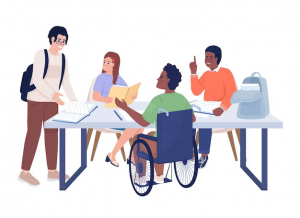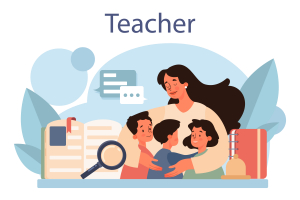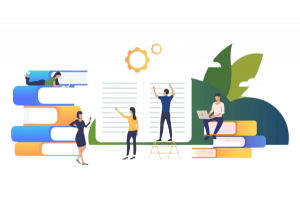Theme: Digital Diversity and Ethics in LCTL Pedagogy
The National Council of Less Commonly Taught Languages (NCOLCTL) is happy to announce the 28th Annual Conference of the National Council of Less Commonly Taught Languages, which will take place at the from April 24-27, 2025. This year’s conference theme, “Digital Diversity and Ethics in LCTL Pedagogy,” offers an exciting opportunity to delve into innovative research and teaching practices. We will engage in meaningful exchanges and collaborations among LCTL educators, focusing on how emerging technologies can promote ethical practices and diverse digital learning environments. Together, we will harness the strengths and resources of the LCTL community on a global scale, fostering a more inclusive and conscientious approach to language teaching and learning.
This year, the SLCTLS – Shared LCTL Symposium will join us again on April 24, 2025. Do not miss the chance to participate in these two events, which are nationally recognized for advocating LCTLs. They offer an unparalleled opportunity to explore innovative research and teaching practices while maximizing professional exchanges and collaboration among LCTL educators. Together, we will leverage our collective resources and strengths to advance the LCTL community.
We cordially invite researchers, educators, practitioners, and program and curriculum developers to submit proposals for individual papers, colloquia, and poster sessions. This year’s conference focuses on emerging trends and innovative programs that address the evolving needs of today’s language learners and educators in less commonly taught languages. We are particularly interested in presentations that explore ethical practices and promote digital diversity, with broad relevance to multiple languages, even if they focus on a specific language. Join us at this dynamic international forum to share your expertise, learn from others, and collaborate with colleagues and peers dedicated to advancing ethical and diverse digital pedagogies in the LCTL community.
Topics of interest include but are not limited to:
- Ethical Considerations in Digital Language Learning
- Navigating data privacy and security in online LCTL platforms.
- Ensuring equitable access to digital resources for all learners.
- Addressing bias and representation in AI-driven language tools.
- Innovative Digital Tools and Platforms
- Utilizing AI and machine learning to personalize LCTL instruction.
- Integrating virtual reality (VR) and augmented reality (AR) for immersive language experiences.
- Developing mobile apps and gamification techniques for LCTL learning.
- Promoting Intercultural Competence through Technology
- Leveraging digital exchanges and telecollaboration for intercultural dialogue.
- Creating and curating culturally diverse content for LCTL learners.
- Ethical storytelling and narrative techniques in digital LCTL pedagogy.
- Digital Diversity and Inclusive Pedagogies
- Strategies for inclusive design in online LCTL courses.
- Addressing the digital divide: Challenges and solutions for marginalized communities.
- Supporting diverse learning styles and needs through adaptive technology.
- Collaboration and Community Building in Digital Spaces
- Online communities of practice for LCTL educators and learners.
- Collaborative projects and crowdsourcing for LCTL content creation.
- Social media as a tool for LCTL advocacy and community engagement.
- Assessment and Feedback in Digital Environments
- Innovative digital assessment tools for LCTL proficiency.
- Ethical implications of automated feedback and grading systems.
- Designing formative and summative assessments for online LCTL courses.
- Research and Case Studies on Digital LCTL Pedagogy
- Evaluating the impact of digital tools on LCTL learning outcomes.
- Case studies on successful digital LCTL programs and initiatives.
- Methodologies for researching digital diversity and ethics in language education.
- Future Trends in Digital LCTL Education
- Predicting the next big trends in digital language learning.
- The role of open educational resources (OER) in promoting digital diversity.
Paper Categories
Other topics for consideration may include heritage language education, bilingual education, interculturality, literacy, languages across the curriculum, personalized learning, Standards-based instruction, and professionalism.
LCTL Innovation and Technology
LCTL Leadership and Advocacy
LCTL Learner Diversity and Inclusion
LCTL Curriculum and Material Development
LCTL Teacher Professional Development
LCTL Pedagogy
LCTL Assessment
LCTL Research
Presentation Type
You must submit to one of the following formats
Individual Paper
Each presentation is allotted a total of 25 minutes: 20 minutes for presentation and 5 minutes for questions and discussion. A paper should focus clearly on issues related to the main conference theme. Papers may be based on original research or practical experience.
Colloquium
Each panel allows for extensive discussion on a distinct topic. The block of time for colloquia is 1 hour and 30 minutes (typically 3-4 presenters/discussants). Colloquium organizers are to address topics that will foster dialogue among attendees and also address the conference theme. Preference will be given to colloquia that cut across different languages or language groups. A colloquium must not be less than 3 presenters.
Poster Presentation
A poster session may focus on completed work or work in progress related to the teaching and/or learning of less commonly taught languages. They may be in either the traditional poster format (e.g., presentation of materials, or of research completed or in progress) or demonstrations of instructional or information technology. (NB, any proposal in this category requiring technical support must specify in detail the type of hardware or software needed). A poster presentation is allotted a total of 60 minutes.
Proposal Submission & Guidelines
Proposals should be electronically submitted through the 2024 NCOLCTL Conference Call for Proposals website.
If you already have an account with us please click on Submit Proposal
If you do not have an account with us please register as a guest account
Guidelines
- Minimum 50 words abstract and no longer than 250 words
- The abstract must clearly state the objectives, methods, results, and conclusions of the research or practice presented.
- The proposal must be one half-page long (1000 words max)
- Electronic format is the only way in which Proposals/Abstracts may be submitted for this conference.
- Notification of acceptance will be sent by October 2023.
Deadline For Submission: August 30th, 2024
Authors need to submit their paper before midnight of August 30th, 2024 through the online submission portal. If you face any difficulty in uploading the paper contact the NCOLCTL Secretariat at: secretariat@ncolctl.org
Important Note To Presenters
All presenters will be required to pre-register and pre-pay for the conference in order to maintain a slot in the program.
Deadline for Registration (for presenters): November 15th2024.
Details about registration will be posted on the 2024 NCOLCTL Conference website.









